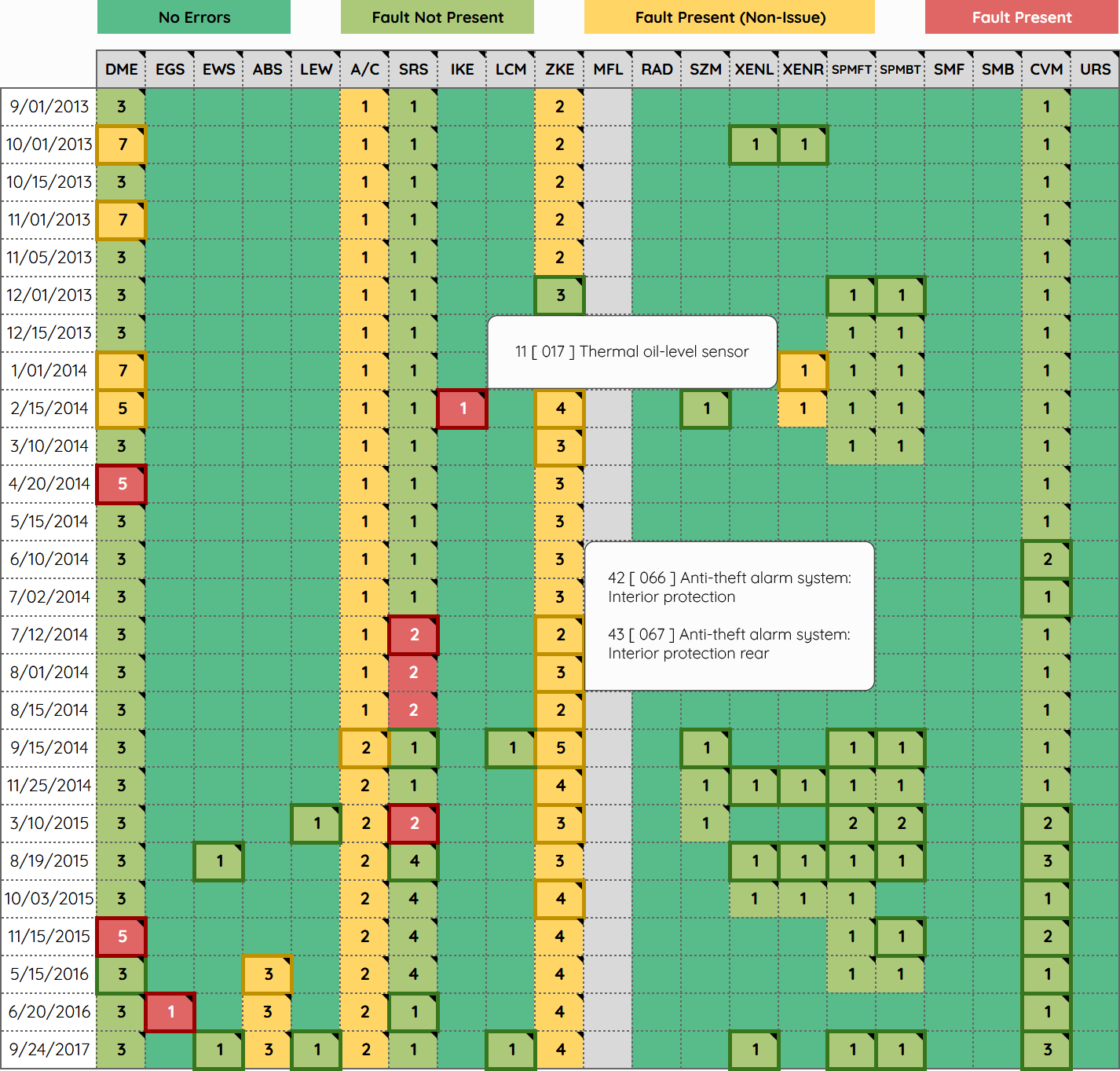Over the years, I’ve casually tracked other aspects that never became part of my standard routine, either because collecting the data was too labor intensive or the results weren’t all that actionable. Tracking fuel octane’s impact on MPG and logging OBDII scans are two good examples of productively failed experiments.
Fuel Octane & MPG Tracking
For several years, I would pick a different fuel grade/ethanol combination each year and log miles per gallon (91 and 93 octane in 0% and 10% variations). Ultimately, the difference was negligible. If you’re curious, the winner was 91 octane with 10% ethanol at 21.9 MPG for the year—it also made sense due to cost and accessibility. I’d been curious how much of a difference octane and ethanol percentages could make, and it turns out, not that much.
OBDII Scans
For a while, I ran monthly diagnostic scans and tracked vehicle control module fault codes. This started off monthly, became quarterly, then bi-annually, and eventually faded away entirely. I originally thought historical trends over time would be interesting to look at (and they can be helpful if you’re chasing multiple, persistent trouble codes), but there’s not much fault code data if you fix everything proactively before it becomes an issue!
